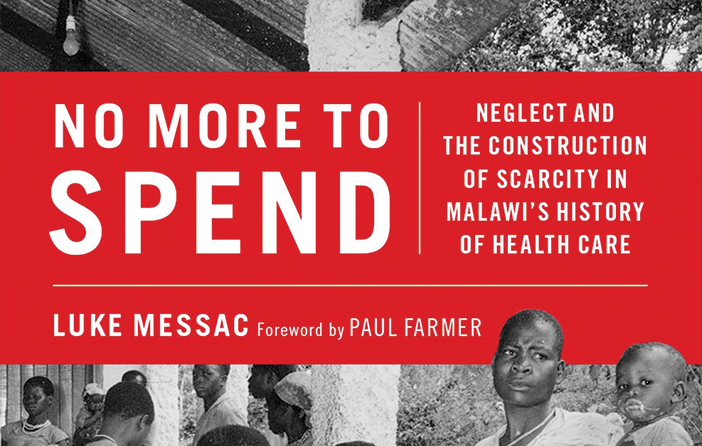No More to Spend: Neglect and the Construction of Scarcity in Malawi’s History of Health Care
Luke Messac RES’22, MD, PHD
Oxford University Press, 2020
Minimal spending on public health is widely accepted as the only option in poor countries, even by academics who study how to do more with less in “low-resource settings.”
Messac, a Brown emergency medicine resident, calls this foregone conclusion the “construction of scarcity” in his detailed study of health care services in Malawi.
The former British colony consistently ranks among the lowest GDP countries in the world. Beginning in
1861, the book traces how Malawians have consistently been told—first by the British empire then by democratically elected leaders and now international aid organizations—that there is simply not enough money to fully fund a health care system. Messac, a medical historian who lived in Malawi for a year while writing his doctoral thesis, rejects this notion. He says common public health decisions regarding which investments will have the biggest impact on health, such as the Malawi Ministry of Health’s choice between investing in “vaccines or latrines,” allow this construction of scarcity to persist.
“Reducing public health to technical considerations of cost-effectiveness ignored the far more troubling questions about how the world’s destitute sick had come to be seen as expendable,” Messac writes.




